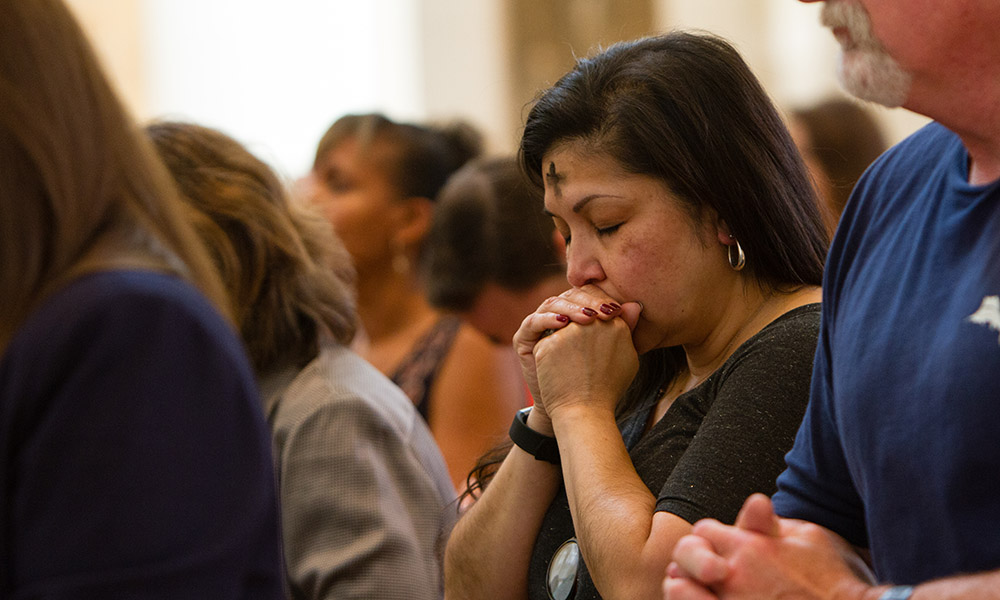Each Lent the Church invites us to deepen our obedience to and love for God with increased penitential practices. Here, we take our direction from Jesus who spent 40 days and nights in the desert penitential and gave us a model to overcome our weaknesses and temptations. “By the solemn forty days of Lent the Church unites herself each year to the mystery of Jesus in the desert” (Catechism of the Catholic Church, No. 540).
The Catechism states that times like Lent are “particularly appropriate” for “voluntary self-denial such as fasting and almsgiving” (CCC, No. 1438).
Penance properly must lead to conversion. An increased prayer life should accompany our penitential practices. That would include more frequent attendance at Holy Mass or reception of the sacrament of penance or increased reading of Sacred Scripture or devotions.
The Church requires certain penitential practices of Catholics. During Fridays of Lent (and each Friday of the year) Catholics over the age of 14 are obliged to refrain from meat. The current exception to this in the United States for Fridays outside of Lent is that we may perform another acceptable penance in substitution to abstinence from meat. Additionally, the Church requires that Catholics aged 18 to 59 are required to fast on Ash Wednesday and Good Friday.
The penitential acts of fasting, prayer and almsgiving — and all penances — are “a radical reorientation of our whole life, a return, a conversion to God with our whole heart, an end of sin, a turning away from evil, with repugnance toward the evil actions we have committed” (CCC, No. 1431). Penance enables us to draw more fully into the heart of God.
Michael R. Heinlein is editor of Simply Catholic magazine. Follow him on Twitter at @HeinleinMichael.

